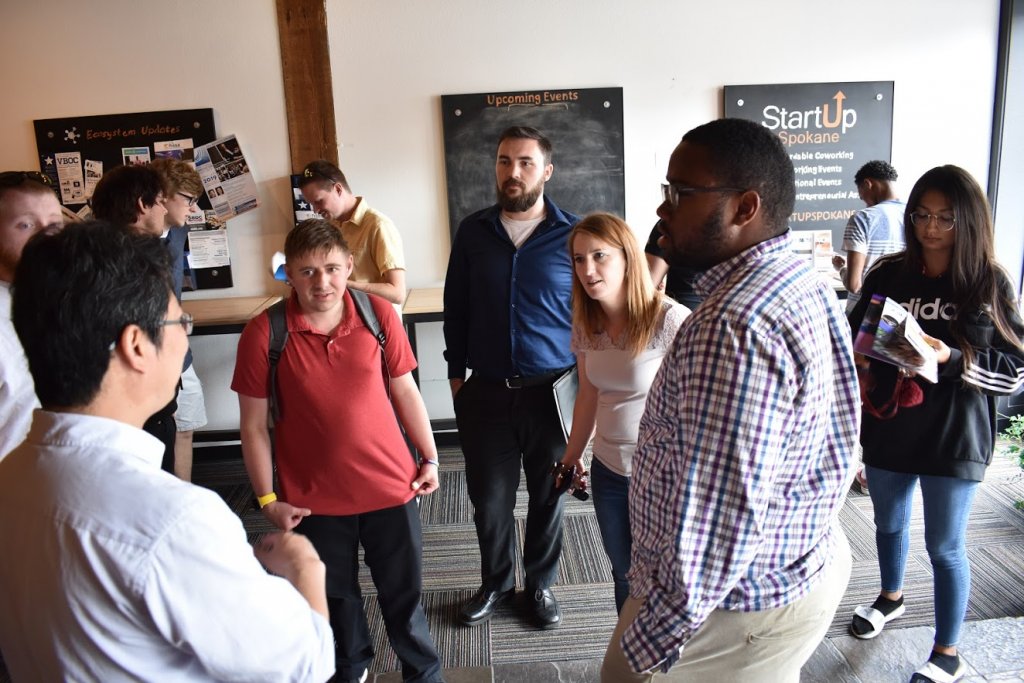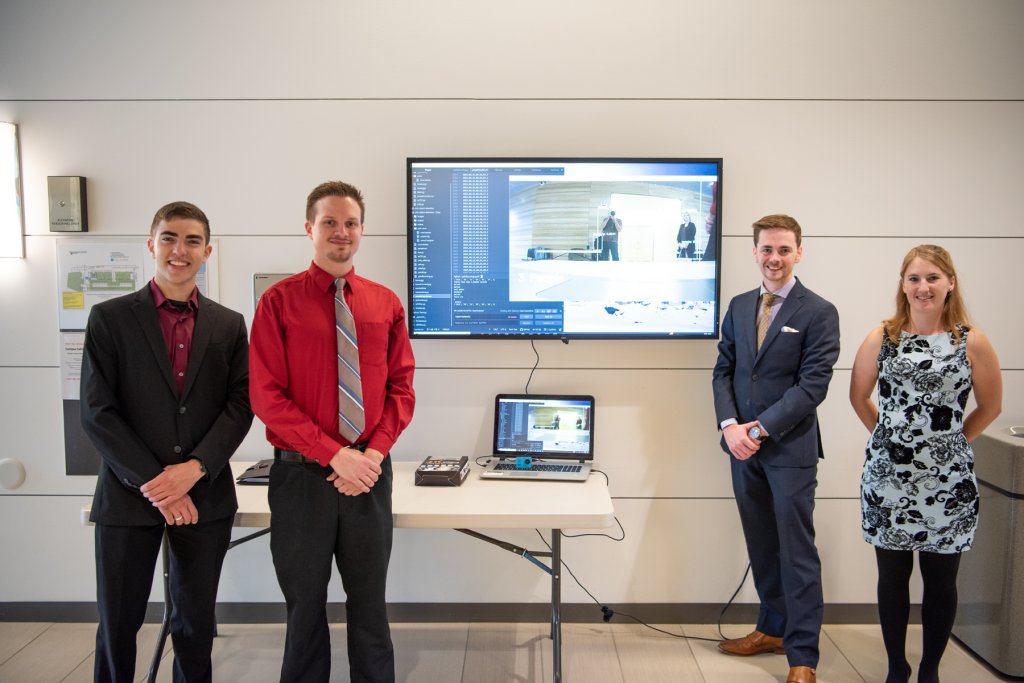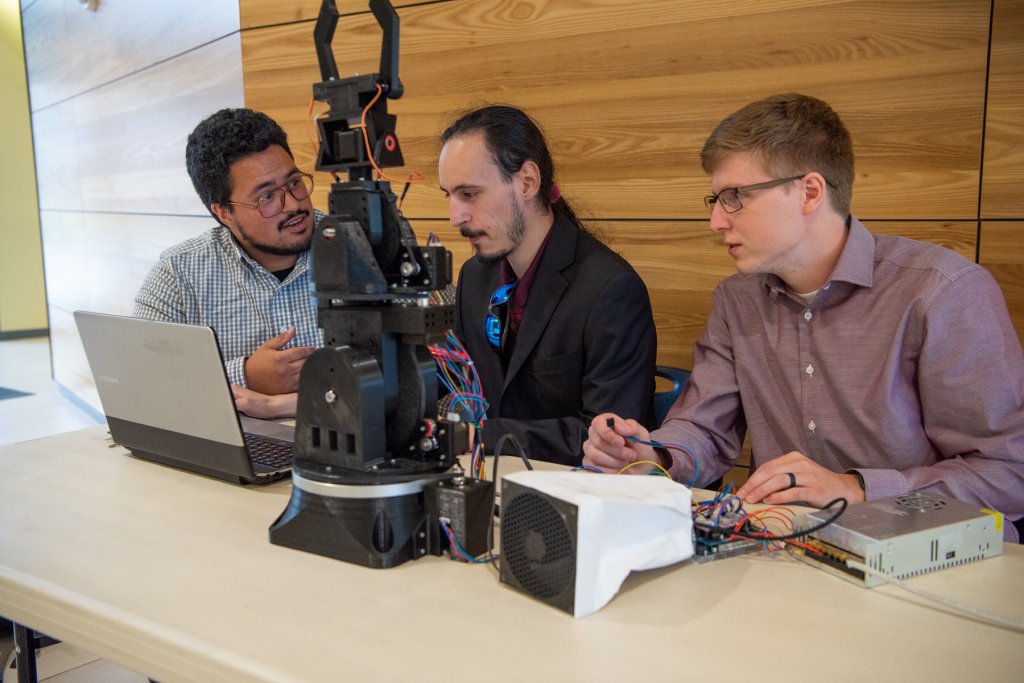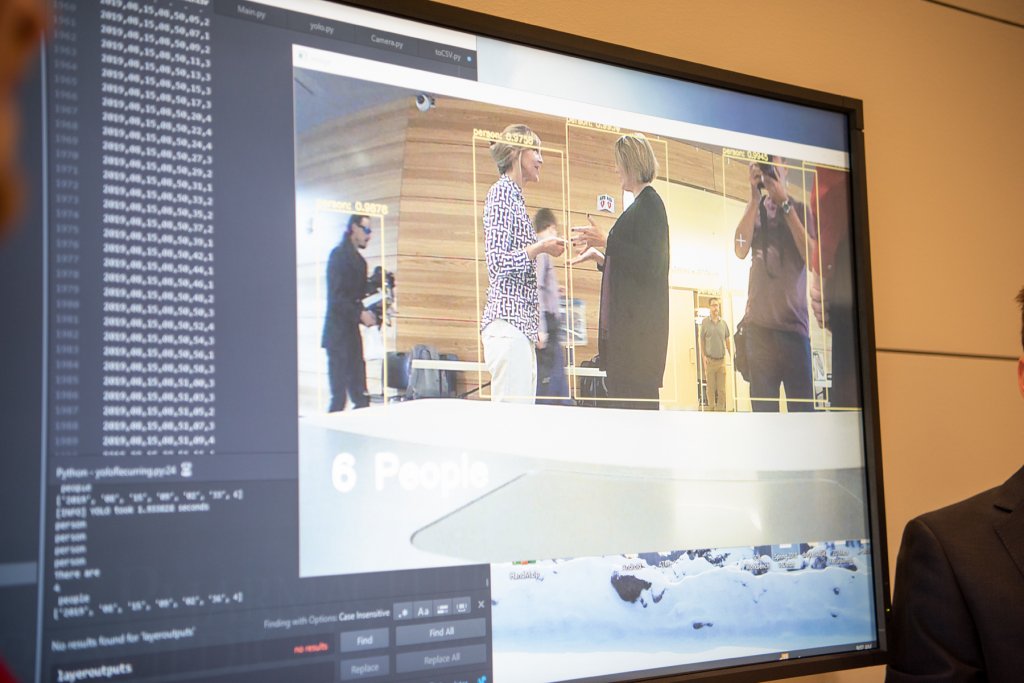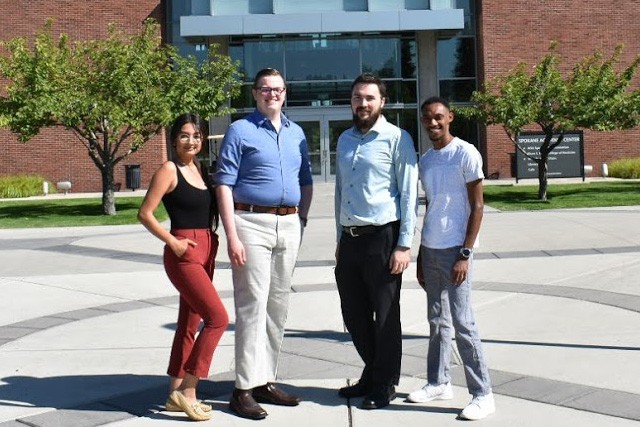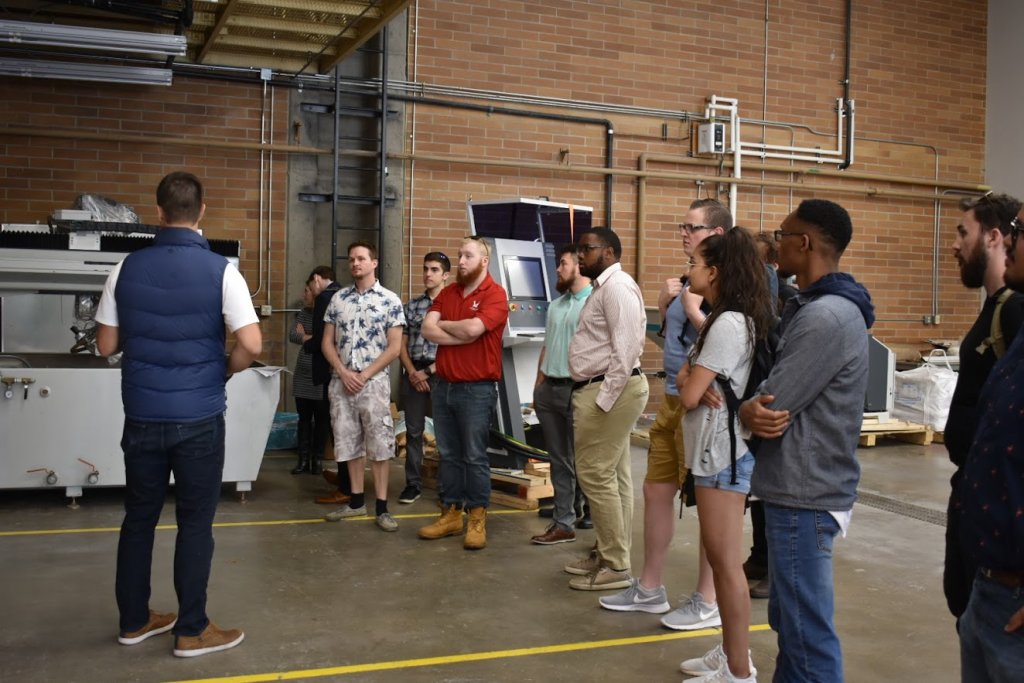Useful products, strong business plans and the intense scrutiny of a panel of judges—it was almost like an episode of Shark Tank was being filmed on the EWU Spokane campus last week as four teams of some of the university’s brightest, business-minded students gave “final-pitch presentations” for their Technology Commercialization Academy Fellowships.
The Technology Commercialization Academy, open to all Eastern Washington University students, is funded by a grant from the Herbert B. Jones Foundation and a donation from Wells Fargo. Those accepted into the rigorous summer program receive a $1,500 scholarship and valuable experience, know-how that is arguably worth more than the scholarship.
“Those who complete this process are designated Technology Commercialization Fellows of Eastern Washington University, so it’s a unique graduation distinction that each of them will earn,” says Bruce Teague, PhD, an EWU professor of entrepreneurship and management. “We’re really proud of the students for the work that they’ve done.”
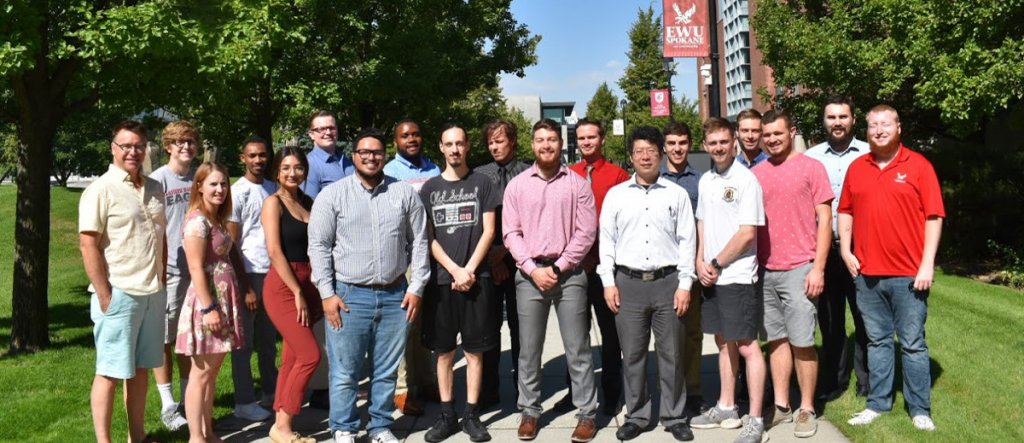
The fellowship program started in 2018 with 12 students. This summer, 15 students earned a spot. The students broke into four groups and, in seven short weeks, learned to grow a business idea from the ground up—from idea generation to development and testing, then to marketing and commercialization.
For the final pitch presentations, each team stood before an auditorium filled with mentors, classmates and judges from local businesses including Wells Fargo, Avista and GenPrime. And while the event didn’t feature the over-the-top drama of reality TV, nerves were surly racing for this next generation of entrepreneurs.
Team Magpie presented first. This student group developed a local tourism app that invites users to go on “hunts” and earn “badges” that help them better navigate and explore the city. The app relies on local users to curate map and event data.
Magpie is currently in talks to partner with Visit Spokane to curate and promote the possible launch of the app.
The next team, Northwest Predictors Inc., tackled the issue of homelessness in Spokane by developing a data collection and activity-based prediction service for homeless shelters. It works by deploying a camera and software system to better track the number of people utilizing a shelter. It uses object recognition technology, not facial recognition, to protect clients’ identities and follow HIPPA requirements.
The team worked off the premise that homeless shelters rely on data when deciding how to best allocate resources and when applying for funding. But while doing interviews they learned that’s not how the shelter directors want to spend their time.
“The last thing they wanted to do was report and collect data,” says Brittney Smith, EWU business student. “What they did want to do was be on the ground level with their clients, helping them receive the basic needs that most of us take for granted.”
Northwest Predictors Inc. is working with Catholic Charities and the City of Spokane on possible implementation of their data-collection system in some Spokane area shelters.
Team ReFilter were next up, pitching what they call “a cleaner puff”—a biodegradable filter for smoking tobacco or cannabis. The students say their filter, packaged in a “tip” that attaches to the end of a cigarette or joint, removes carbon monoxide, formaldehyde and unhealthy particulate matter.
The protein-based nanofiber was engineered by a WSU materials science professor. ReFilter then partnered with local cannabis dispensaries to deliver a test product to consumers. The students say the product is already getting positive feedback. They hope to expand across the state and into the cigarette market.
The final team to go before the panel of judges was STEM-ing Stones Education Program. Their goal is to create an effective new approach to K-12 STEM education.
“We believe all students deserve the opportunity to learn from quality STEM education that has no limits,” says Joseph Lenoue, EWU mechanical engineering student.
The team presented a robotic arm that teachers of any grade level can integrate into their STEM programs—from simple projects like playing a game with the robot, to more advanced tasks like writing a new program for the robot.
The EWU students are currently working with Spokane Christian Academy to implement one of the robot arms, and to include lesson plans into the school’s curriculum.
Four impressive projects pitched to the judges: But only one could win the distinction of Most Promising Business of the 2019 Technology Commercialization Fellowship program.
That distinction went to ReFilter.
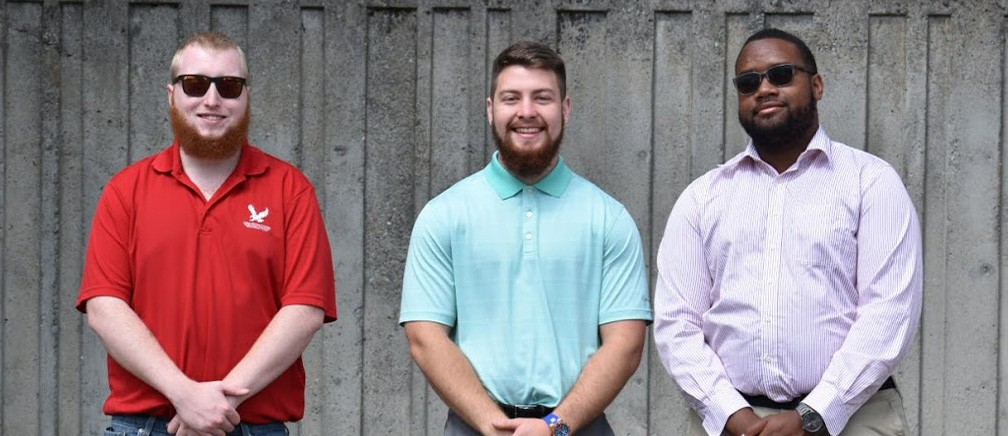
Congratulations to team members Ryan Van Meter, mechanical engineering student; Tanner Cunningham, marketing and business analytics student; and Lloyd Dees, psychology student.
The team will now compete in the Global Conference and Pitch Competition organized by the Collegiate Entrepreneurs’ Organization in Tampa, Florida in October.
EWU faculty advisors are hopeful that all of the students involved will continue to develop their projects. The teams are also encouraged to enter their projects into other pitch competitions and development programs.
Update (added Sept. 10, 2019):
Teams ReFilter and STEM-ing Stones Education Program were selected to participate in the highly competitive WSU NSF I-Corps Site Program.
The National Science Foundation I-Corps 8-week program at WSU gives each team up to $2,500 in funding and provides the students the opportunity to meet with industry experts and potential customers as they improve their products. Teams successfully completing this program have a higher likelihood to earn additional grants or funding and are more likely to launch a business.
